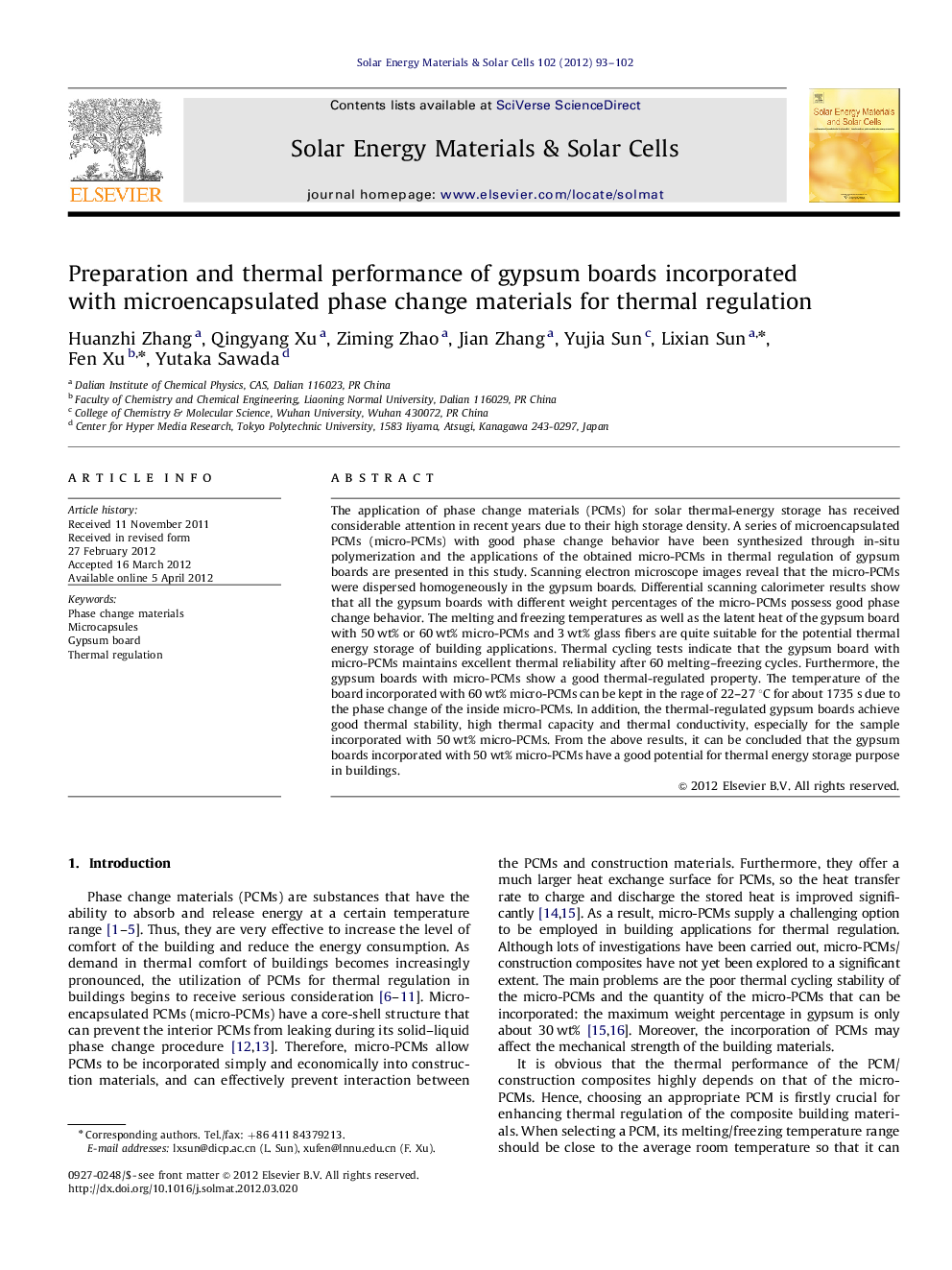| کد مقاله | کد نشریه | سال انتشار | مقاله انگلیسی | نسخه تمام متن |
|---|---|---|---|---|
| 78557 | 49336 | 2012 | 10 صفحه PDF | دانلود رایگان |

The application of phase change materials (PCMs) for solar thermal-energy storage has received considerable attention in recent years due to their high storage density. A series of microencapsulated PCMs (micro-PCMs) with good phase change behavior have been synthesized through in-situ polymerization and the applications of the obtained micro-PCMs in thermal regulation of gypsum boards are presented in this study. Scanning electron microscope images reveal that the micro-PCMs were dispersed homogeneously in the gypsum boards. Differential scanning calorimeter results show that all the gypsum boards with different weight percentages of the micro-PCMs possess good phase change behavior. The melting and freezing temperatures as well as the latent heat of the gypsum board with 50 wt% or 60 wt% micro-PCMs and 3 wt% glass fibers are quite suitable for the potential thermal energy storage of building applications. Thermal cycling tests indicate that the gypsum board with micro-PCMs maintains excellent thermal reliability after 60 melting–freezing cycles. Furthermore, the gypsum boards with micro-PCMs show a good thermal-regulated property. The temperature of the board incorporated with 60 wt% micro-PCMs can be kept in the rage of 22–27 °C for about 1735 s due to the phase change of the inside micro-PCMs. In addition, the thermal-regulated gypsum boards achieve good thermal stability, high thermal capacity and thermal conductivity, especially for the sample incorporated with 50 wt% micro-PCMs. From the above results, it can be concluded that the gypsum boards incorporated with 50 wt% micro-PCMs have a good potential for thermal energy storage purpose in buildings.
► A novel thermal-regulated gypsum board (GB) is designed for building.
► Latent heat of GB with 60 wt% microcapsules is 76.9 J/g.
► Latent heat of GB almost has no change after 60 thermal cycling.
► Temperature of GB with microcapsules can be kept in the range of 22–27 °C.
► Thermal conductivity of GB with 50 wt% microcapsules is 0.3129 W M−1 K−1.
Journal: Solar Energy Materials and Solar Cells - Volume 102, July 2012, Pages 93–102